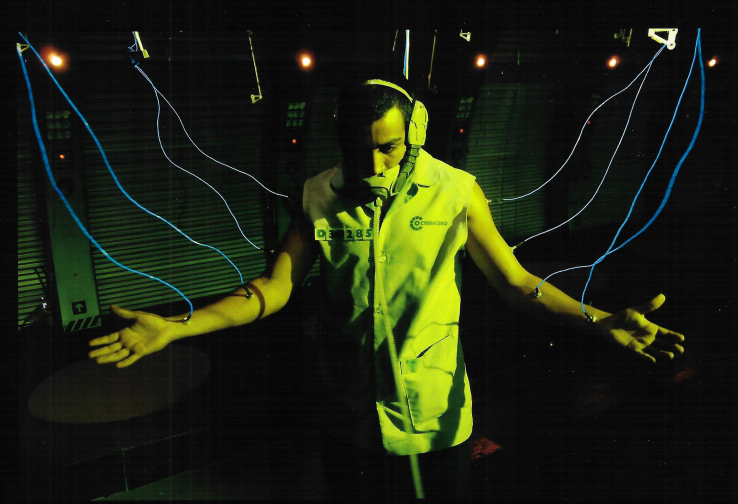
so far ahead of its time it’s painful to think about. funnier than ulysses. smarter than your smart shelf. both the danzy senna foreword and the harryette mullen afterword are great to have in the new directions edition. the afterword has a good deal of originally researched biographic detail and mullen’s scholarship was what brought the book back from obscurity for the Northeastern University Press reprint in 2000.
some links:
•the Danzy Senna foreword as it appeared in NYer:
By the nineteen-eighties, black literature was a dark male symphony no longer. Black women writers had come into vogue. And yet, in the nineteen-nineties, as I read “Oreo” in my apartment in Fort Greene, the birthplace of post-soul black bohemia, Ross felt to me like part of some future that had yet to arrive.
•paul beatty shouting it out in a piece on black humor from 2006
•darryl pinckney review in nyrb. behind a paywall but pinckney lists other co-contemporary african american novels, arguing: “It took a while for the militancy that had overtaken much work by black poets and black playwrights in the 1960s to find expression in fiction, because it was difficult for black writers to free themselves from the narrative traditions of double-consciousness. In fiction, the movement took the form of escapes from realism, from the pieties of the black condition.” His list includes: William Demby’s The Catacombs (1965), Charles Wright’s The Wig (1966), William Melvin Kelley’s dem (1967) and Dunfords Travels Everywheres (1970), Clarence Major’s Emergency Exit (1979), John Oliver Killens’s The Cotillion (1970), Bill Gunn’s Black Picture Show (1978) and Rhinestone Sharecropping (1981), and Ishmael Reed’s Mumbo Jumbo (1972).
•tisa bryant’s review, which has this intriguing note: “Fran Ross skewers racism, sexism, homophobia in terms that are prescient for 1974, and still in play in today’s continued push for social transformation. She takes so many risks here, proving the point poet/writer R. Erica Doyle made in a recent conversation: capitalism co-opted fiction, and killed the experimental novel. The experimental novel by a Black writer, then, is more of a rarity now than then.” (bryant, an experimental novelist, also points to xam wilson cartier‘s overlooked status.)
• harryette mullen‘s afterword speaks a great deal to the question of authenticity, especially the question of the authenticity of, and audience for, an experimental fiction writer of color. here are two passages that struck me, the first placing OREO in a historical context and the second particularly good during our moment’s struggle with concepts of appropriation/acculturation/assimilation/cultural exchange:
Paradoxically, as much as it was concerned with defining the cultural distinctiveness of African Americans, the Black Arts movement also helped to create unprecedented opportunities for the creative expression of African Americans to enter and influence “mainstream” American culture. Sometimes the more “black rage” was vented in the work, the more the writer was celebrated in the mainstream culture. In addition to this tense interaction of political, aesthetic, and commercial impulses, another contradiction that the Black Arts movement posed for authors was the idea that black Americans possessed no authentic literature or language of their own. Writers wrestled with the dilemma that they were severed from the spoken languages and oral traditions of their African ancestors, and had no intrinsic connection to the language and literature of their historical oppressors. The English language itself was perceived by some as a tool of oppression. The more fluent in standard English, or other European languages, the more immersed in established literary culture, the more likely one might be accused of forsaking one’s own traditions, or abandoning the black community — by writing works it could not comprehend, or enjoy, or draw upon for inspiration in the coming revolution that radical activists envisioned.
Fran Ross’s novel, Oreo, was published in 1974, when the Black Arts movement had reached the height of its influence. Yet, as its title signals, Oreo does not claim to represent any singularly authentic black experience. More eccentric than Afrocentric, Ross’s novel calls attention to the hybridity rather than the racial or cultural purity of African Americans…
& later:
In Oreo’s interactions with members of both sides of her family, as well as with neighbors, friends, acquaintances, and strangers, Ross’s novel suggests that acculturation is not a one-way street, but is more like a subway system with graffiti-tagged cars that travel uptown as well as downtown, or even more like an interconnected network of multi-lane freeways. Particularly in racially diverse and integrated settings, immigrants of various races and national origins, on their way to becoming American, may emulate the cultural styles of black Americans, since African Americans, though a minority, are as much the founders of American culture as Anglo Americans. Anglos themselves are a minority of white Americans. Oreo’s biracial and bicultural heritage is not so exceptional when one considers that most native-born Americans, regardless of skin color, are products of racial hybridity, just as American culture and language are products of cultural and linguistic hybridity…

…and last bit, cuz it’s enough to make you laugh so you don’t cry. from the 1975 library journal review: “This novel is experimental, intelligent, and even funny in places. The dialogue, however, is a strange mixture of Uncle Remus and Lenny Bruce, and quite often unintelligible.”































